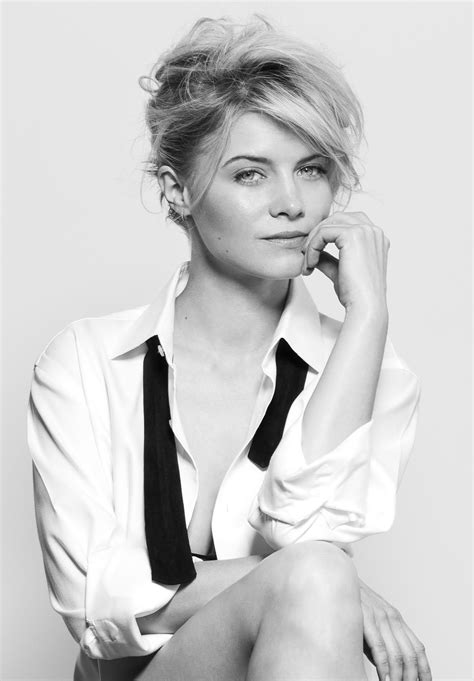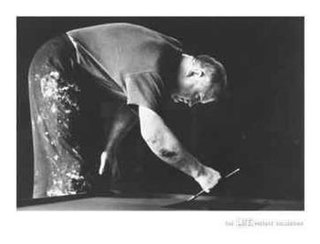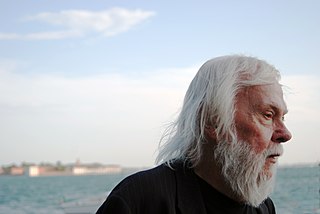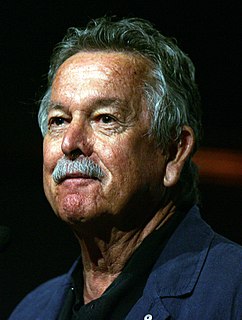A Quote by Aaron Siskind
In any art, you don't know in advance what you want to say - it's revealed to you as you say it. That's the difference between art and illustration.
Quote Topics
Related Quotes
Mathematics is really an art, not a science. You could say science also is an art. So I would say the difference is something you can't really describe - you can only recognize. You hear somebody playing the violin, and it was Fritz Kreisler or it was somebody else, and you can tell the difference. It is so in almost every art. We just don't understand why it is that there are just a few people who are just completely off the scale and the rest of them are just mediocre. And we don't know why. But I say it's certainly true of mathematics.
I'd say art is with you. All around you. I'd say when there doesn't seem to be anyone else, there is art. I'd say you can love art how you wish to be loved. And I'd say art is a lifeline to the rest of us - we are out here. You are not alone. There is nothing about you that scares us. There is nothing unlovable about you, either.
I think there is a debate in the arts about, you know, whether we must strive for art for art's sake, and you know, kind of try to keep political debate out of our work. And to that I say, I'd like you to show me an example of, you know, this so-called apolitical art. I don't think there's any such thing.
The one object of fifty years of abstract art is to present art-as-art and as nothing else, to make it into the one thing it is only, separating and defining it more and more, making it purer and emptier, more absolute and more exclusive - non-objective, non-representational, non-figurative, non-imagist, non-expressionist, non-subjective. the only and one way to say what abstract art or art-as-art is, is to say what it is not.
It is hard to think of any work of art of which one can say 'this saved the life of one Jew, one Vietnamese, one Cambodian'. Specific books, perhaps; but as far as one can tell, no paintings or sculptures. The difference between us and the artists of the 1920's is that they they thought such a work of art could be made. Perhaps it was a certain naivete that made them think so. But it is certainly our loss that we cannot.
Art shouldn't be something that you go quietly into an art gallery and dip your forelock and say 'I have to be very quiet, I'm in here amongst the art.' It's here, art's everywhere. It's how you use your eyes. It's about the enjoyment of visual things. And it's certainly not for any one group of people.
What is the art experience about? Really, I'm not interested in making Art at all. I never, ever, think about it. To say the word Art, it's almost like a curse on art. I do know that I want to try to get closer to myself. The older I get, the more indications I have about what it is to get closer to yourself. You try less hard. I just want to be.
Has it led you to the conclusion that photography is an art ? Or it is simply a means of recording ? "I'm glad you asked that. I've been wanting to say this for years. Is cooking an art ? Is talking an art ? Is even painting an art ? It is artfulness that makes art, not the medium itself. Of course photography is an art - when it is in the hands of artists."
I think that a lot of artists have succeeded in making what I might call "curator's art." Everybody's being accepted, and I always want to say, "Really? That's what you've come for? To make art that looks a lot like somebody else's art?" If I am thinking of somebody else's art in front of your art, that's a problem.
Many people say they are so happy to be doing what they do and they love it. But there's a difference between loving your job and living only for your job. And I think people always will say I am overworking and I am over-exposed and that's what I want is all the attention. That's not. What I love is the art of it all.




































